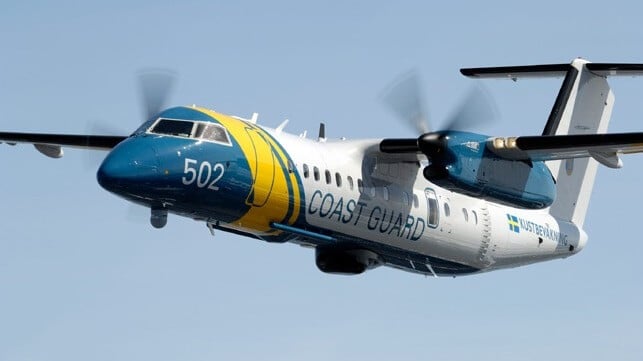Swedish Coast Guard Catches Crew Dumping Trash

In a recent incident highlighting Sweden’s commitment to marine conservation, the Swedish Coast Guard detected a crew member illegally dumping household trash into the Baltic Sea. This event, which occurred on October 20, underscores the enhanced surveillance measures being implemented to protect the marine environment. Officials emphasize that the sea should remain free of waste, and this incident, while minor, reflects ongoing monitoring efforts.
Incident Details and Response
The Coast Guard’s surveillance aircraft, conducting routine patrols, spotted the crew member disposing of trash from a Liberian-flagged bulk carrier. Although the amount of waste was not specified, it was significant enough to be visible from the air. The ship had anchored near Faro, an island in the Baltic Sea, while en route from Russia to India. Following the detection, the Coast Guard allowed the vessel to continue its journey to Gothenburg, where it was subsequently boarded for further investigation.
Upon arrival in Gothenburg, Coast Guard officials interviewed the crew, leading to a confession from the individual responsible for the dumping. The crew member was fined “50 daily fines,” though the exact monetary amount was not disclosed. Under Swedish law, fines are based on the offender’s income, with daily fines typically ranging from SEK 50 to 1,000 (approximately $5 to $100). This means the total fine could vary significantly depending on the individual’s earnings. Importantly, Swedish regulations hold the individual accountable for such actions, rather than the ship or its captain.
Denmark Bans Scrubber Discharge From Ships To Protect Its Territorial Waters
Increased Monitoring Efforts
This incident is relatively rare, according to a Coast Guard spokesperson, who noted that they usually deal with more severe pollution cases, such as discharges from vessels. Earlier this year, the Swedish Coast Guard announced an increase in monitoring activities due to concerns about shadow fleet vessels operating in the region. These efforts include regular surveillance flights and enhanced oversight of maritime traffic in the Baltic Sea.
Since July, the Coast Guard has also been tasked with collecting insurance information from all ships passing through Swedish territorial waters or the economic zone, regardless of whether they plan to dock in Sweden. This initiative aims to bolster maritime safety and environmental protection, ensuring that all vessels comply with regulations designed to safeguard the marine ecosystem.
